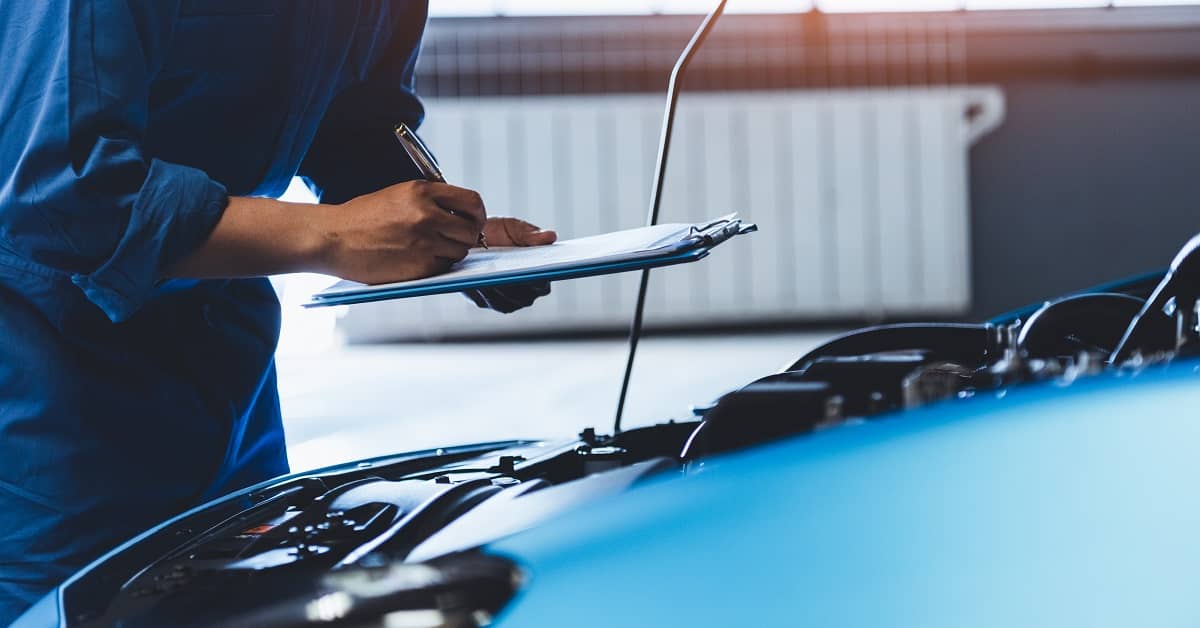
Automobile safety has been a headline item for nearly as long as the automobile has been around. Some of the most publicized product liability cases in U.S. history have centered on defects in cars, trucks, buses, and off-road vehicles.
While we consistently see improvement in the safety of motor vehicles, defects and part failures still pose a danger to drivers and passengers. Sadly, many of the defective items are those designed to make us safer.
After any accident, the driver of the other vehicle is the first person people look at to assign fault. However, recovering fair compensation for your injuries often requires looking beyond the obvious cause to identify all of the factors that led to the crash.
The car accident lawyers at Patrick Daniel Law are strategic, meticulous, and merciless in their handling of accident claims. We conduct thorough investigations to identify all liable parties, including the driver of the vehicle, a vehicle or parts manufacturer, and more.
Please call (713) 999-6666 today to schedule a free consultation. Our attorneys serve clients in Houston, all of Texas, and nationwide.
The modern automobile is a marvel of design, technology, craftsmanship, and usefulness, and people have developed deep relationships with their cars. According to The Car Connection, each year Americans spend the equivalent of 18 entire days in their cars. With that much time behind the wheel, it is not surprising that automobile accidents are among the leading causes of injuries and deaths in the United States.
The overwhelming majority of these crashes occur due to driver error. Common errors include distracted driving, speeding, driving under the influence, failing to maintain braking distance, failing to adjust for weather conditions, and errors of judgment.
The number of accidents caused by defects in automobiles is much lower, but still significant. According to a study by the National Highway Traffic Safety Administration, these are the leading causes of defect-related automobile crashes:
Each of these deficiencies may involve a combination of driver error and auto defect. If a part on the car fails, the driver has an obligation to try to avoid an accident. However, depending on the nature and seriousness of the defect, an accident may be practically unavoidable.
For the most part, if a defective part or product came on the car you bought as original equipment, liability rests with the manufacturer. The implied warranty involves the buyer and the car manufacturer, even if the product that failed was made by another company (and most are).
The issue gets more complicated when the buyer adds devices or accessories made by a company that was not part of the original assembly, or contributes to the risk by not operating the product in the prescribed manner.
In a product liability claim, the defective product must be shown to be the precise cause of the plaintiff’s injury. Mishaps that occur due to the plaintiff’s ignorance on how to use the product or due to dismissal of the safety warnings reduce or even eliminate liability on the part of the manufacturer.
Some states apportion the recovery (amount of money to be collected by the plaintiff) based on the percentage of fault in the accident. If the plaintiff was found to be 25 percent at fault in the accident (not in comparison to the other driver, but to the product failure), then recovery will be reduced by 25 percent. This is known as the comparative negligence rule, which applies in all but a handful of U.S. states.
You should not let contributory negligence derail your claim altogether. The opposing side would love it if you did, and will likely make a motion for the whole case to be thrown out citing your contributory negligence. But the law is still on your side if a defective product fails, even if it was partially your fault.
If you were driving 84 miles per hour in a 70 mph zone and your car developed a bad wobble that you could not control, leading to a crash, the car manufacturer would still be at least partially liable in most instances. The insurance adjuster or a lawyer for the insurance company could say that your speed is what caused the accident, and that you have no case as a result. That is a bluff, an attempt to get you to drop your claim or accept a lowball settlement offer.
It is within the implied warranty theory for you to reasonably expect your car to be as free of defects at 84 miles per hour as it is at 70 miles per hour. You might get some money shaved off your verdict or settlement because of your speeding, but the overall claim is still valid.
Many product liability cases have ended in rulings for the defendant because the plaintiff used the automobile for some purpose other than its intended use. It is a strong defense that carries a lot of weight in court, but it is not unassailable.
The manufacturer is required to anticipate foreseeable misuse and alterations of the product and develop the product with that in mind. The key is the word “foreseeable.” It is foreseeable that a driver would exceed the speed limit. It is foreseeable that a driver would take a turn too fast. It is foreseeable that an owner would tint windows too darkly. The manufacturer can’t be expected to envision all of the many ways in which a vehicle could be altered or misused, however, and this can become a major point of contention in court or in settlement negotiations.
If the product failure is directly connected to alteration or misuse by the owner, and if there are ample, clear warnings present, the defense has a strong case. The manufacturer may opt to make a good-faith settlement offer to protect its image, but a plaintiff should not expect it to be a particularly generous offer.
You can sue a car manufacturer for damages resulting from the failure of a defective part or system that’s part of your car. Since car assembly plants use parts from a multitude of suppliers, it can be reasoned that the car manufacturer was unaware of problems with any part from any of those suppliers.
The car manufacturer can then sue the company that made the defective part. When that happens, the part maker becomes a third-party defendant in the case. It doesn’t absolve the car manufacturer from its liability, but it does give recourse to at least a portion of the loss it incurs in settling with the plaintiff.
The owner of the car is not the only party that may have a valid claim after an accident involving a defective automobile. Occupants of other vehicles involved in the crash may have legal recourse against the other driver as well as multiple parties within the chain of commerce, including:
If you have been injured in an auto accident, it is so important to examine all of the factors. Investigation may reveal one or more errors on the part of the driver, but assessment of the vehicle may reveal deficiencies or defects. To recover full compensation for your injuries, it may be necessary to pursue multiple legal claims.
Patrick Daniel Law has extensive experience handling auto accident claims involving negligent drivers, defective parts, and many other factors. We are Strategic, Meticulous, and Merciless, thoroughly investigating each case and developing individualized legal strategies to pursue the best outcome on behalf of our clients.
For a free case review, please call (713) 999-6666 today. Our auto accident attorneys serve clients in Houston, all of Texas, and nationwide.
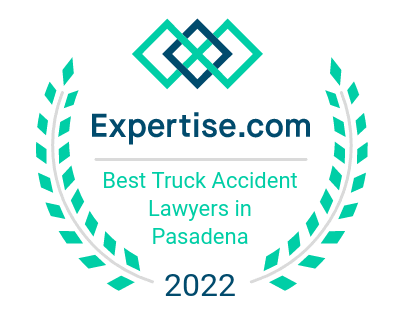 Top Truck Accident Lawyer in Pasadena
Top Truck Accident Lawyer in Pasadena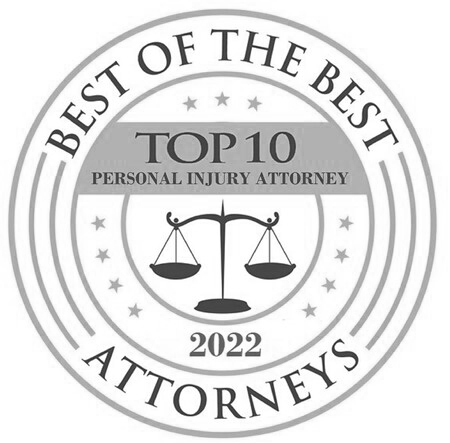 Best of The Best Attorneys
Best of The Best Attorneys Best of the Best Houston Chronicle 2021
Best of the Best Houston Chronicle 2021 Best Motorcycle Accident Lawyers in Houston 2021
Best Motorcycle Accident Lawyers in Houston 2021 American Association for Justice Member
American Association for Justice Member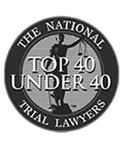 The National Trial Lawyers 2016 – (Top 40 under 40)
The National Trial Lawyers 2016 – (Top 40 under 40)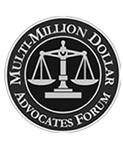 Multi-Million Dollar Advocates Forum 2016 (Top Trial Lawyer)
Multi-Million Dollar Advocates Forum 2016 (Top Trial Lawyer)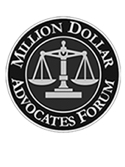 Million Dollar Advocates Forum 2019 (Top Trial Lawyer)
Million Dollar Advocates Forum 2019 (Top Trial Lawyer) America’s Top 100 Attorneys 2020 (High Stake Litigators)
America’s Top 100 Attorneys 2020 (High Stake Litigators)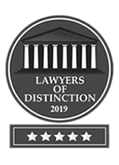 Lawyers of Distinction 2019, 2020 (Recognizing Excellence in Personal Injury)
Lawyers of Distinction 2019, 2020 (Recognizing Excellence in Personal Injury)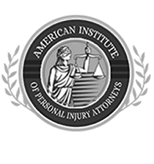 American Institute of Personal Injury Attorneys 2020 (Top 10 Best Attorneys – Client Satisfaction)
American Institute of Personal Injury Attorneys 2020 (Top 10 Best Attorneys – Client Satisfaction) American Institute of Legal Advocates 2020 (Membership)
American Institute of Legal Advocates 2020 (Membership)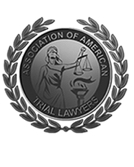 Association of American Trial Lawyers 2018 - Top 100 Award recognizing excellence in personal injury law
Association of American Trial Lawyers 2018 - Top 100 Award recognizing excellence in personal injury law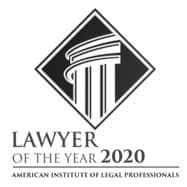 American Institute of Legal Professionals 2020 (Lawyer of the Year)
American Institute of Legal Professionals 2020 (Lawyer of the Year) Lead Counsel Verified Personal Injury 2020
Lead Counsel Verified Personal Injury 2020 The Houston Business Journal 2021
The Houston Business Journal 2021